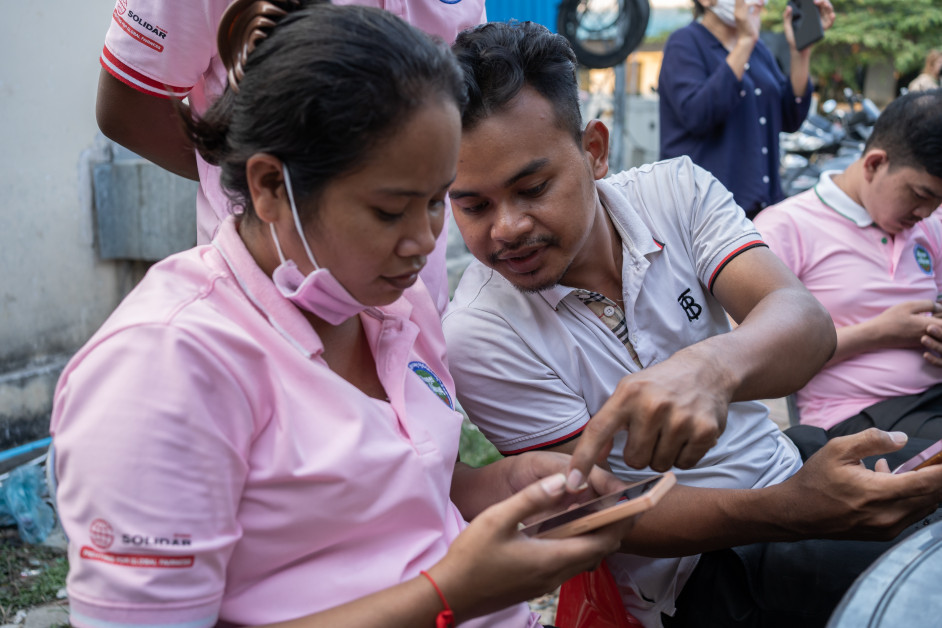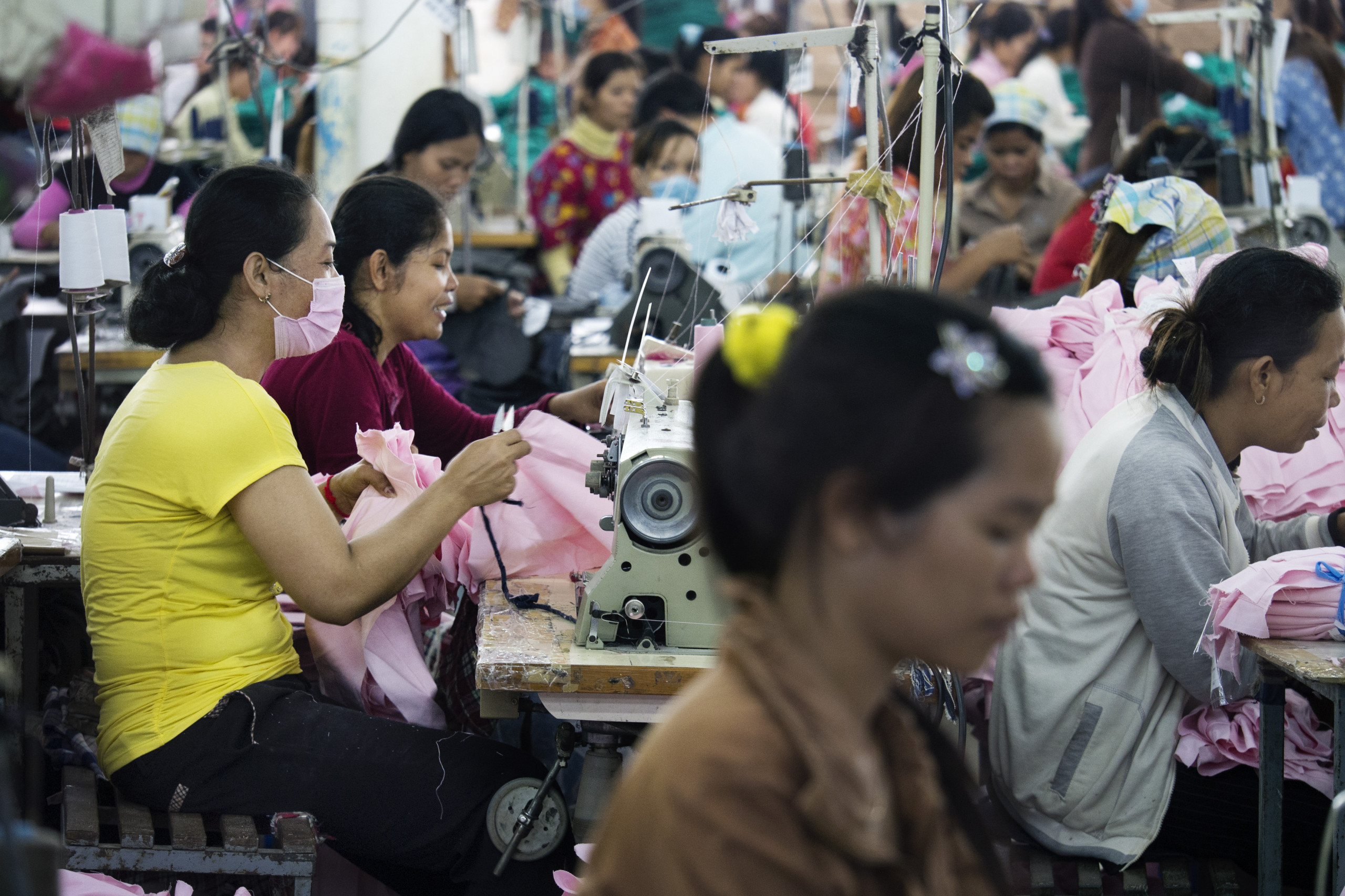An urgent call to action for improved living conditions
The Fair Work Monitor of CNV Internationaal and our Cambodian partner trade unions reveals alarming information regarding the living conditions of garment workers in Cambodia. The results show that the situation for workers has only deteriorated since the pilot study in 2022. While inflation has caused their monthly expenses to rise dramatically, their salaries have decreased. As a result, more and more people are having to take out loans in order to make ends meet, even to cover the most basic costs of daily living. Unions in Cambodia are currently negotiating with the government and employers about the minimum wage for 2024.
However, the Fair Work Monitor’s startling results give us more than enough reason to request greater attention be paid to these garment workers and their circumstances. We expect clothing brands to seriously look at the results and do everything in their power to help improve the situation so that garment workers in Cambodia can live a dignified life.

Garment workers participating in the Fair Work Monitor in Cambodia
The most significant results
Salaries
The monthly salary of most workers is not enough to cover the basic costs of living. The average worker earns a mere 260 USD while living expenses for garment workers are around 500 USD. Salaries need to rise significantly in order to bridge this gap.
Increased cost of living
The study shows that monthly expenses of the workers who were interviewed rose by 42% between 2022 (the pilot study) and 2023, putting much more pressure on the workers financially. 40% of workers have taken on extra work, beyond their fulltime jobs at the garment factories, just to cover their monthly costs.
Loans
The high cost of living combined with the stagnation of wages has led to a disturbing level of debt among workers. This year, almost 80% of the workers who were interviewed have had to borrow money to be able to pay for fundamental daily needs, like food and medicine. This means that 4 out 5 garment workers have loans to pay for day-to-day expenses.
80% of export
Cambodia’s economy has depended strongly on the garment industry for more than 20 years. It accounts for 30% of their GDP and 80% of their export income, making it invaluable to the country.
Recommendations
Therefore, CNV Internationaal and our Cambodian partner unions would like to make some recommendations on how living conditions for the garment workers can be improved.
The importance of social dialogue
It is important that employers, the Cambodian government and unions have social dialogue about improving working conditions and wages in the garment industry. This is vital for the industry to sustain and remain competitive for the long term.
The role of brands
The national government, employers, and unions have a pivotal role in creating good working conditions and decent wages in the Cambodian garment industry. But they can’t do this alone. Clothing brands and international governments are extremely important and must take responsibility for their actions and practices.
Brands can help in the following ways by:
- Raising purchase prices so workers can be paid higher (minimum) wages
- Creating long-term stable business relationships with the factories they source from
- Improving the payment terms towards the factories they source from
- Working with other brands and initiatives in the chain in order to realise living wages as soon as possible
The role of Dutch and European governments
The government of the Netherlands, the EU and beyond have an important role when it comes to establishing ambitious and effective legislation around international corporate social responsibility. Living wages and union rights must be firmly incorporated into such legislation.
Stronger role for unions
Unions play an important role in realising living wages sustainabily through minimum wage negotiations and collective bargaining agreements. In Cambodia unions negotiate a new minimum wage for the garment sector every year.
With their direct access to workers, unions can on a large scale collect up-to-date information directly from the workers on wages, cost of living and other labour conditions. This data is beneficial for all stakeholders interested in advancing the position of garment workers in Cambodia, including for the unions themselves.
About the Fair Work Monitor
The Fair Work Monitor in Cambodia collects the voice of workers on their living and working conditions in the garment industry. This tool supports the advocacy activities of our Cambodian partner unions through surveys answered directly by workers in the garment industry. This year in Cambodia over a thousand workers participated in the survey.
Improving the lives of garment workers together
CNV Internationaal and our partner unions would like to invite clothing brands and multistakeholder initiatives for practical conversations on how they can support the payment of living wages in Cambodia. Together we can find ways to improve the lives of garment workers.
Download the report

Contact
Isabelle de Lijser, Regional Coordinator Asia, Living Wage Expert
E-mail: i.delijser@cnv.nl
Telephone +31 6 1001 9376
Publication date 06 09 2023


